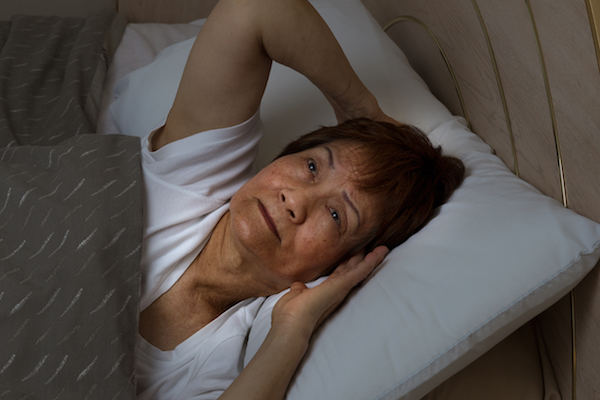Curbing Insomnia in Older Americans

Everyone knows what it’s like to operate on little sleep. Your mind feels groggy and out of sorts and even the simplest tasks can present huge complications. With seemingly little on the agenda of your older loved one each day, you would think sleep would come naturally to them. However, a growing number of seniors today (up to 30%) experience sleep disorders in the form of infrequent sleep patterns, sleep apnea and waking up too early, among other disorders.
A happy, healthy and well-rested parent is more likely to engage socially with family members, and others around him or her.
Your loved one may be missing out on his or her necessary sleep patterns due to chronic pain, previous illness, medication, lifestyle changes, anxiety or depression. When you begin to suspect your mom or dad is dealing with insomnia, you may want to consider the following:
Examine their medications for possible sleep-related side effects and consult with their doctor to see if there is a medication they can take in its place.
Also, make sure that they are taking any medication in a timely fashion. At LifeFone, when using on our medical alert devices, your loved one can also subscribe to our ‘medication reminder’ services.
Establish a routine eating schedule. By limiting the food or drinks your care recipient consumes after a certain time, you may be able to curb late night bathroom breaks.
Before settling down for the night, suggest they read a book or magazine instead of watching television. Encourage physical activity during the day, like going for a short walk, stretching, lifting light weights, or completing balance exercises.
Encourage them to establish a sleep schedule so they go to bed and wakes up at the same time every day.
They may also need to limit the amount of caffeine prior to bedtime.
Make the room as conducive to sleep as possible by ensuring the room is dark, and there are no distractions like phones or noisy clocks.
Do not rely on temporary over-the-counter sleeping aids to remedy the problem. They will only lead to short-term gains, but as the body builds up resistance, sleeping problems may worsen.
Sleep is vital to every aspect of your loved one’s health. By examining their sleep-related difficulties, you will also be doing yourself a huge favor. A few minor changes could amount to a world of difference.
- How Seniors Can Feel Empowered in a Digital World with Accessible Technology
- February Is American Heart Month
- Thriving as a New Caregiver: Self-Care Secrets Revealed
- Bridging the Gap: Supporting Seniors Without Nearby Family
- Distance Caregiving Simplified: Modern Strategies for Compassionate Support
FREE BROCHURE Today!
